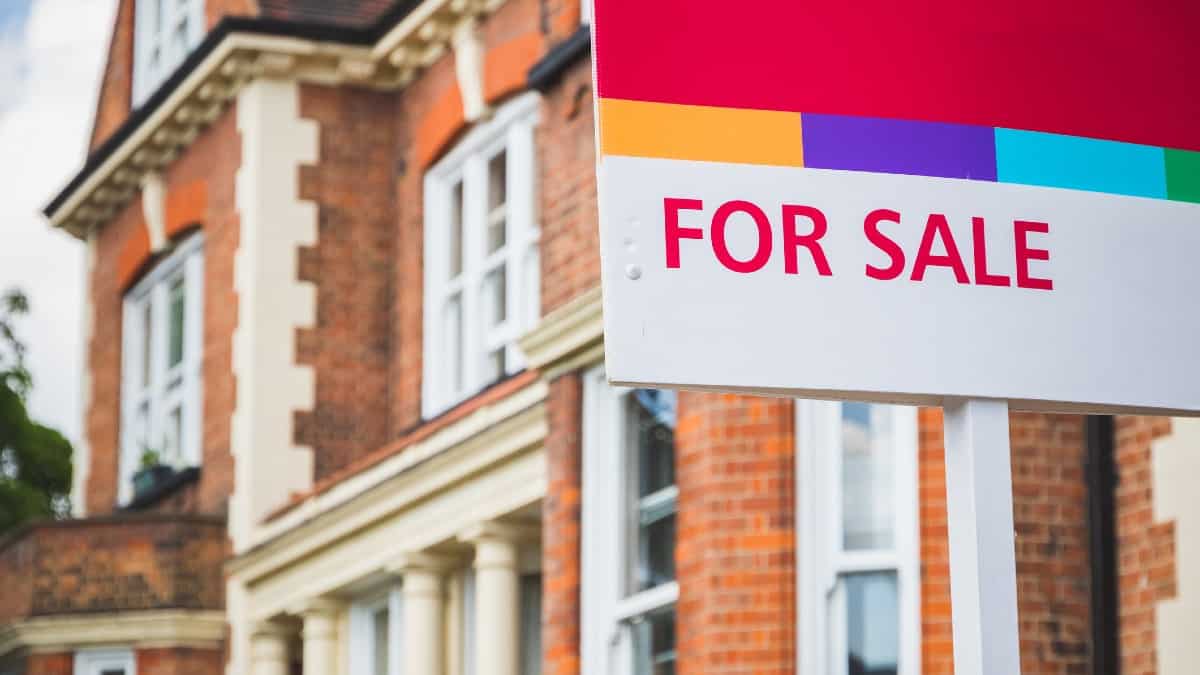The UK housing market is booming. Prices have risen £5,000 in a single month according to Nationwide’s latest House Price Index. The lender reports that the average home now costs over £260,000.
So, when will the UK housing market finally start to cool? And could house prices crash later this year? Let’s take a look.
[top_pitch]
UK housing market: what’s happening with house prices?
The UK housing market is considered notoriously unpredictable. Yet, almost every month we get new data that suggests house prices are continuing to soar. As a result, anyone who’s been closely following the property market over recent years will be forgiven for thinking prices can only ever go up.
Nationwide’s House Price Index for March doesn’t particularly challenge this narrative either. It reports the average home in the UK now costs a staggering £260,320. This represents a rise of 1.7% compared to February and a 12.6% year-on-year increase.
If we compare today’s average price with the price in February 2020, before the pandemic, we see that it’s increased by more than £44,000. This suggests the UK housing market has witnessed a 20% post-pandemic boom.
What’s causing soaring house prices in the UK?
Commenting on the latest index, Robert Gardner, Nationwide’s chief economist, highlights how “robust demand” and a shortage of homes has contributed to record house prices. He explains: “Housing market activity has remained robust in recent months, with mortgage approvals continuing to run above pre-pandemic levels at the start of the year. A combination of robust demand and limited stock of homes on the market has kept upward pressure on prices.”
Despite this reasoning, Gardner feels that rampant house price inflation is a little surprising given the soaring cost of living. He explains: “The continued buoyancy of the housing market is a little surprising, given the mounting pressure on household budgets from rising inflation, which reached a 30-year high of 5.5% in January, and since borrowing costs have started to move up from all-time lows in recent months.
“The strength is particularly noteworthy since the squeeze on household incomes has led to a significant weakening of consumer confidence. Indeed, consumers’ view of the general economic outlook and prospects for their own financial circumstances over the next 12 months have plunged towards levels prevailing at the start of the pandemic.”
[middle_pitch]
Will house prices crash this year?
Given soaring prices in recent years, many first-time buyers will be hoping for a house price crash this year. While Nationwide’s Robert Gardner doesn’t particularly expect a huge drop in prices, he does suggest that house price growth could slow later this year. He explains: “The economic outlook is particularly uncertain at present. Nevertheless, it is likely that the housing market will slow in the quarters ahead. The squeeze on household incomes is set to intensify, with inflation expected to rise above 7% in the coming months.”
Gardener also highlights how rising interest rates could help to curb house price growth. He states: “Indeed, there is scope for inflation to rise even further as events in Ukraine threaten to send global energy prices even higher. Assuming that labour market conditions remain strong, the Bank of England is also likely to raise interest rates, which will exert a further drag on the market if this feeds through to mortgage rates.”
That being said, budding homeowners shouldn’t get too excited given that the UK’s central bank has indicated it is in favour of scrapping affordability rules. If this happens, it will likely increase the number of large mortgages issued by lenders, which may further fuel house price inflation. That’s because, aside from other variables, access to credit has a huge influence on the cost of a property.
Are you looking for a mortgage? If you’re planning to buy a home, take a look at The Motley Fool’s top-rated mortgage deals.







